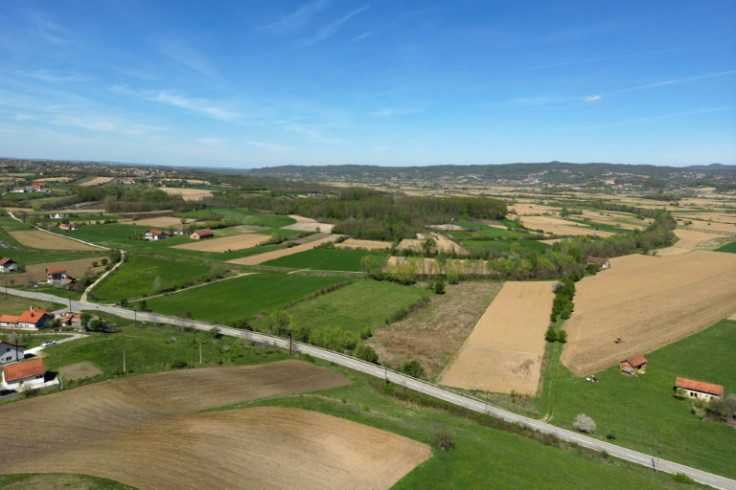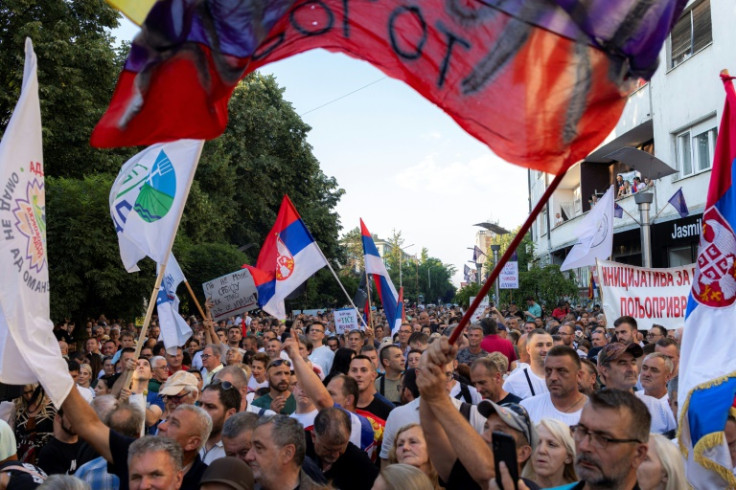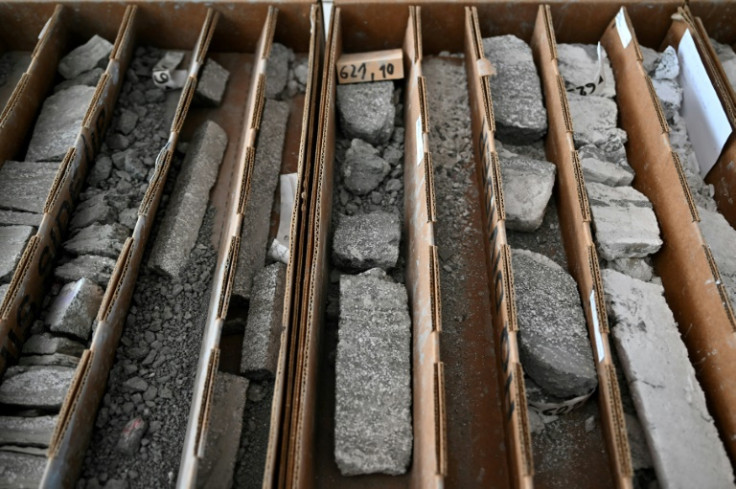EU, Serbia Sign Deal To Kickstart Lithium Battery Development

The European Union and Serbia signed a deal Friday to develop the supply of lithium batteries that are seen as a crucial building block needed to power Europe's transition to a green economy.
The memorandum of understanding inked during a "critical raw materials summit" in Belgrade is seen as the first step in developing Serbia's mineral resources and potentially building supply chains, including manufacturing lithium batteries and component parts.
The deal comes just days after a court decision saw the Serbian government reapprove a lithium mining project that had been shuttered for two years following mass protests.
Lithium is a strategically valuable metal needed for assembling electric vehicle batteries, making it key for helping Germany's flagship automotive sector shift to greener production.
Serbia has vast lithium deposits near the western city of Loznica, where a disputed mining project run by the Anglo-Australian mining giant Rio Tinto has been a perennial political fault line in the Balkan country in recent years.
"There will be no project without full protection, and we know it will happen because we are bringing the best experts from Europe to Serbia," said Serbian President Aleksandar Vucic during the summit, which was attended by German Chancellor Olaf Scholz and European Commission Vice-President Maros Sefcovic.
"Chancellor Scholz has offered Germany's support for Serbia to develop a more extensive lithium production value chain, which will bring us billions in investments," Vucic added.
The government reinstated the licenses for the mining project earlier this week, after revoking in 2022 the permits granted to Rio Tinto following a string of demonstrations over environmental concerns.
The announcement came after Serbia's constitutional court ruled last week that the permit cancellations were "not in line with the constitution and the law", paving the way for the government to resume the project.
Vucic, whose party won parliamentary elections in December, has said environmental protection would be a priority after extracting new assurances from the company.
Rio Tinto has said Serbia's lithium reserves in Loznica could produce an estimated 58,000 tonnes annually, enough for 1.1 million electric vehicles.
During an interview with Germany's Handelsblatt ahead of the Belgrade summit, Vucic said conversations were ongoing with a range of European automakers including Mercedes, Volkswagen and Stellantis.
Vucic also said the country's lithium exports would be sold only to European partners for the time being, despite interest from Chinese manufacturers.
"We promised this to the EU representatives," said Vucic on Friday when asked about the comments.
"We have excellent relations with the Chinese, and that has nothing to do with this project."
Opponents remain worried however over the mine's impact on the environment and public health.
Critics of the mine have long accused Vucic's government of having a poor track record with regulating its industrial sector.
Outside of the summit, a small group of protestors surrounded by police slammed the deal.
"Leave lithium and democracy to the Serbian people," said Savo Manojlovic, a leading organiser of the protests against the mine.
Protestors also say the country is taking the biggest environmental risks with the mine for the sake of the EU's transition to a green economy.
The lithium deposits near Loznica were discovered in 2004, but weeks of protests sparked by fears for the environment and public health forced the government to halt the project in 2022.
Vucic has hinted that Serbia could begin mining lithium as early as 2028.
The president has also said the deal would involve guarantees that limited the sale of raw materials from the country and ensure that most of the lithium exports would be through Serbian-produced batteries or component parts.
"This means battery production and potentially cars (would be manufactured in Serbia), indicating a significant technological undertaking that involves domestic science, expertise, and industry," Aleksandar Jovovic from the mechanical engineering department of Belgrade University told AFP.
Serbia has been a candidate to join the European Union since 2012, but its prospects are seen as bleak without a normalisation of relations with Kosovo.
"The partnership will further strengthen political relations and promote long-term economic growth in Serbia and the EU, contributing to Serbia's efforts to join the EU," the Serbian government said in a statement on Thursday.
mp-ds


© Copyright AFP 2025. All rights reserved.





















